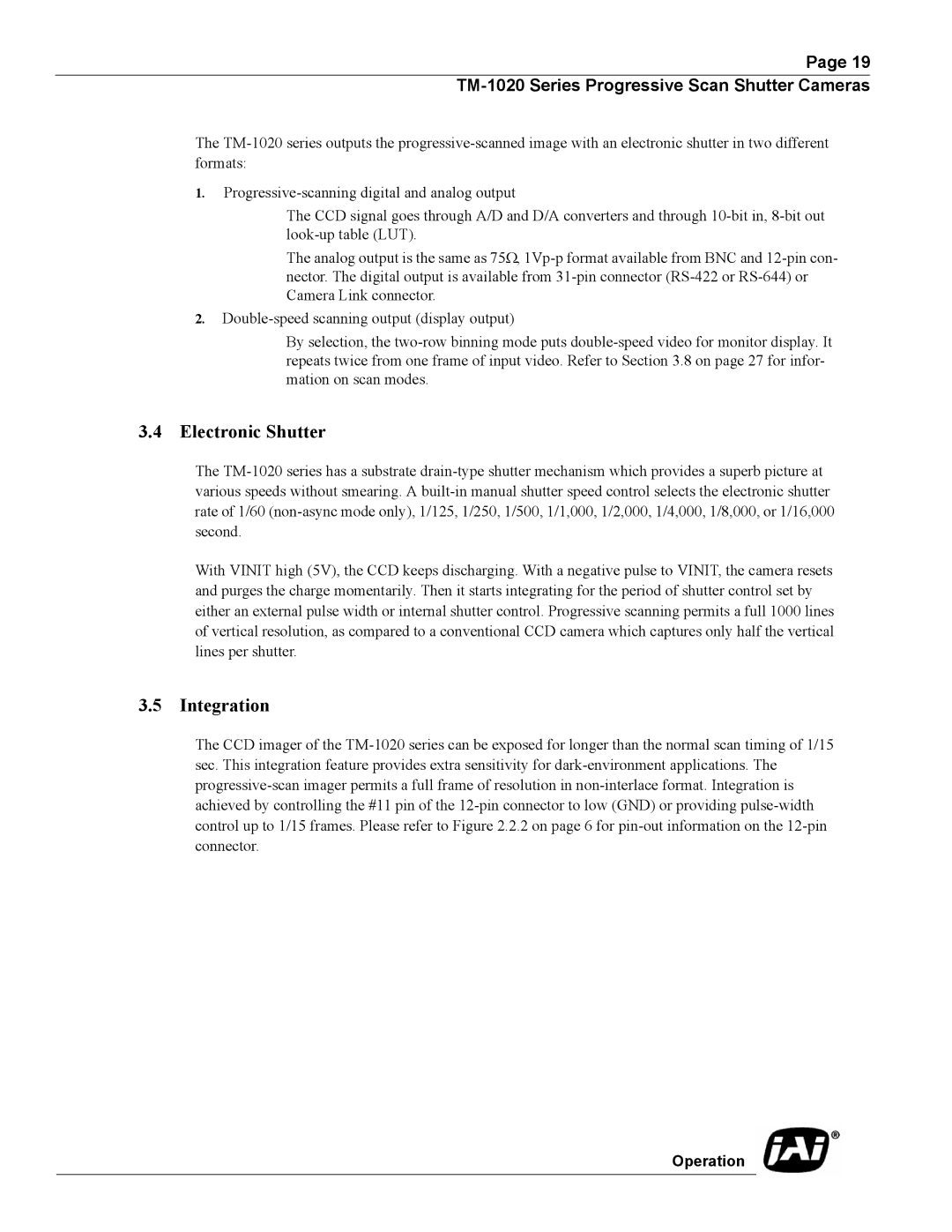Page 19
TM-1020 Series Progressive Scan Shutter Cameras
The TM-1020 series outputs the progressive-scanned image with an electronic shutter in two different formats:
1.Progressive-scanning digital and analog output
The CCD signal goes through A/D and D/A converters and through 10-bit in, 8-bit out look-up table (LUT).
The analog output is the same as 75Ω, 1Vp-p format available from BNC and 12-pin con- nector. The digital output is available from 31-pin connector (RS-422 or RS-644) or Camera Link connector.
2.Double-speed scanning output (display output)
By selection, the two-row binning mode puts double-speed video for monitor display. It repeats twice from one frame of input video. Refer to Section 3.8 on page 27 for infor- mation on scan modes.
3.4 Electronic Shutter
The TM-1020 series has a substrate drain-type shutter mechanism which provides a superb picture at various speeds without smearing. A built-in manual shutter speed control selects the electronic shutter rate of 1/60 (non-async mode only), 1/125, 1/250, 1/500, 1/1,000, 1/2,000, 1/4,000, 1/8,000, or 1/16,000 second.
With VINIT high (5V), the CCD keeps discharging. With a negative pulse to VINIT, the camera resets and purges the charge momentarily. Then it starts integrating for the period of shutter control set by either an external pulse width or internal shutter control. Progressive scanning permits a full 1000 lines of vertical resolution, as compared to a conventional CCD camera which captures only half the vertical lines per shutter.
3.5 Integration
The CCD imager of the TM-1020 series can be exposed for longer than the normal scan timing of 1/15 sec. This integration feature provides extra sensitivity for dark-environment applications. The progressive-scan imager permits a full frame of resolution in non-interlace format. Integration is achieved by controlling the #11 pin of the 12-pin connector to low (GND) or providing pulse-width control up to 1/15 frames. Please refer to Figure 2.2.2 on page 6 for pin-out information on the 12-pin connector.

